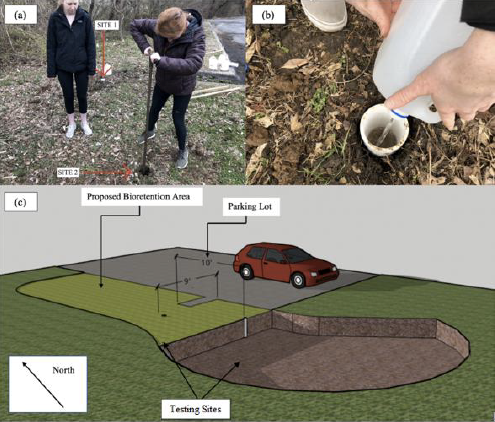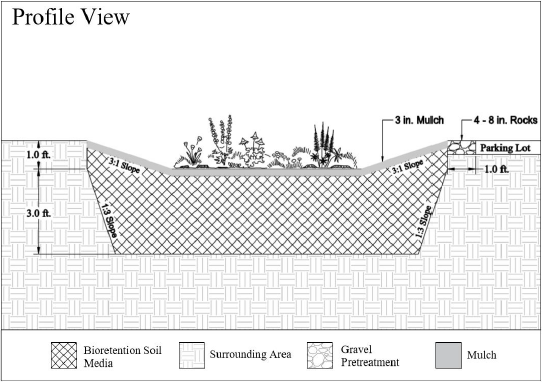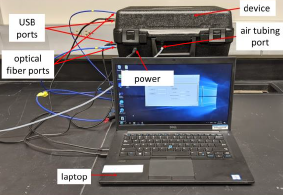
Biological engineering students took home top honors for their research and design work in two categories at a national conference.
A team of seniors earned first place for their project designing a bioretention cell for use by the city of Fayetteville to reduce flooding, treat parking lot runoff and improve the aesthetic of the nearby parking lot.
Team members Brynn Bodwell, Kanaan Hardaway, Kira Simonson and Clare Yurchak took home the top prize in the Gunlogson Environmental Student Design Open Competition hosted by the American Society of Agricultural and Biological Engineers.
The team is co-advised by Assistant Professor Benjamin Runkle and Teaching Assistant Professor Kieu Le, both in the Department of Biological and Agricultural Engineering.
 A profile view of the senior design team’s winning design. |
 A photo of doctoral student Xinge Xi’s winning research project – a portable, easy-to-use device that can detect salmonella in the field. |
Biological Engineering doctoral student Xinge Xi earned first place in the ASABE 2020 Boyd-Scott Graduate Research Award. Xi was honored for her work on an easy-to-use, portable device that can quickly detect the foodborne bacteria Salmonella in the field, as opposed to sending samples to a lab for processing.
Advised by Yanbin Li, distinguished professor and Tyson Endowed Chair in Biosensing Engineering, Xi converted a previously-developed biosensing method into a portable biosensing device for simple, rapid and quantitative detection of Salmonella Typhimurium.
Xi designed, built and tested the device as part of her winning submission. The device consisted of a microfluidic control module, a magnetic separation module and a fluorescent detection module, and was able to detect Salmonella even when other bacteria were present.
"Since traditional methods are time-consuming and laborious, novel methods are urgently needed for fast, sensitive, labor-saving, and cost-effective detection; moreover, it is also crucial to convert these methods into portable devices for in-field and on-site detection," Xi wrote.
Lalit Verma, head of the Department of Biological and Agricultural Engineering, said the awards were well-deserved.
"I'm pleased to see the excellent work of our students recognized at the national level," he said. "Our students are pushing forward work that makes a difference in our community and around the world, and these awards are a sign of the high caliber of that work."
Topics
Contacts
Nick DeMoss, director of communications
College of Engineering
479-575-5697,